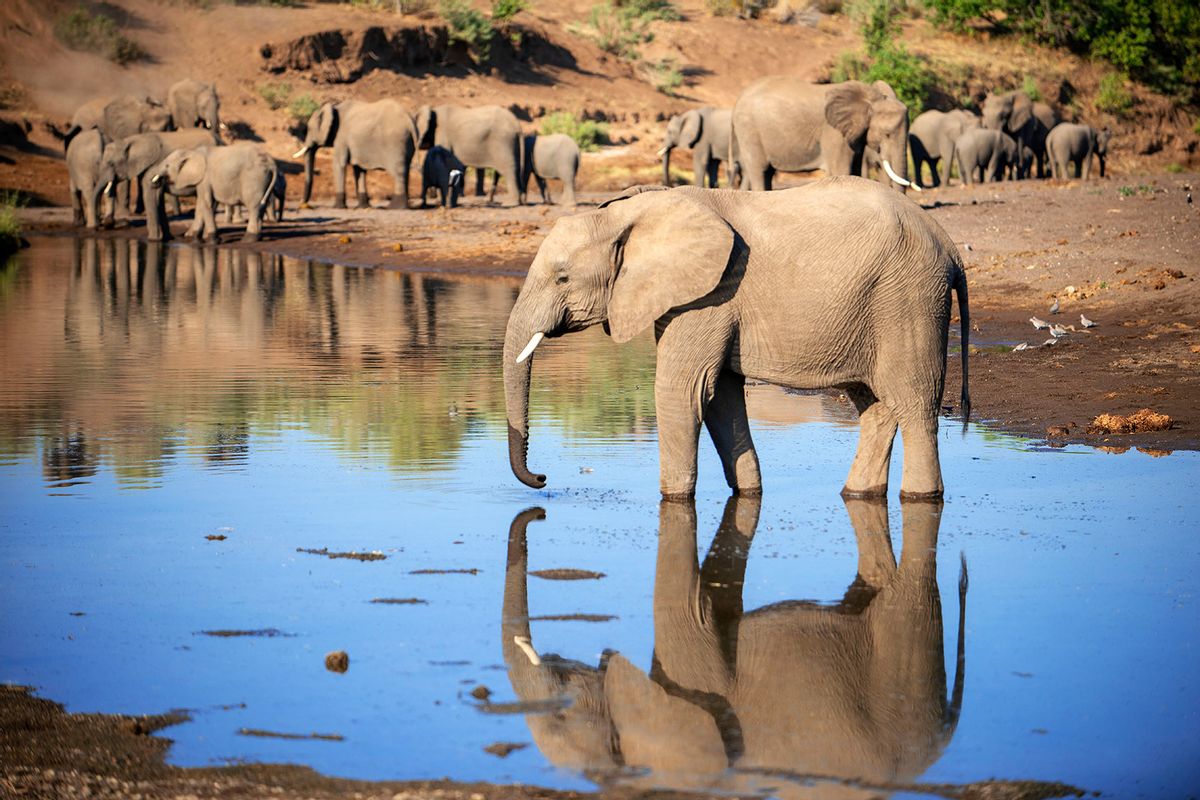If you want to hear elephants gossip about each other in Kenya, you can either travel south to the Amboseli National Park or explore the greater Samburu ecosystem in the north. In both areas, you will find herds of the African savannah elephants that — according to a new study — have become the first animals outside of humans to give each other actual names.
The groundbreaking new study, which has not been peer-reviewed, comes from eight researchers across the U.S., Kenya and Norway and offers promising insight into how non-human species communicate with conspecifics, or other members of the same species.
“Here, we show that wild African elephants address one another with individually specific calls,” the authors wrote. “Our findings offer the first evidence for a non-human species individually addressing conspecifics without imitating the receiver.”
Researchers described a unique element of the elephants’ naming behavior which sets the species apart. Other animals with similar behavior — like bottlenose dolphins and parrots — have specific, name-like calls for individual members of their groups. But those name-like calls are just imitations of any unique or signature sound that the individual member makes most frequently. The other members of the group are just mimicking a group member’s unique sound back to it.
"If non-imitative name analogs were found in other species, this could have important implications for our understanding of language evolution."
The elephants, however, don’t appear to be mimicking a call-receiving member. Rather, they appear to be creating an entirely new name for the group member — one that the group member didn’t choose for themself, and which has nothing to do with any individual vocal quirks it might have.
“Labeling objects or individuals without relying on imitation of the sounds made by that object or individual is key to the expressive power of language,” the researchers wrote. “Thus, if non-imitative name analogs were found in other species, this could have important implications for our understanding of language evolution.”
Want more health and science stories in your inbox? Subscribe to Salon's weekly newsletter Lab Notes.
But how can you tell which elephant words are names when you don’t speak elephant? Much the same as you might identifying personal names among humans whose language you don’t speak — by looking for unique sounds that all members use when referring to an individual, but which none use when referring to other things in the world.
To isolate those specific sounds requires significant data collection, however. Analyzing that amount of data also requires an ear keener than what humans possess. The vocabulary of elephants is found in the nuances of the animals’ complex low-frequency rumbling sounds, which register at just 1 to 20 hertz, but which can be heard by other elephants as far as six miles away. (Those giant ears are good for something.) And the rumbles for food, for example, are subtly different than their rumbles for predator warnings or for referencing nearby objects.
The team recorded 625 elephant calls in their cross-country research, then leveraged a machine learning algorithm to analyze the collection, sorting the recordings by matching elephant behaviors to unique sounds. When a female elephant and her offspring were separated from a group, then came back to the group when they heard a unique call from other group members, the scientists were able to pinpoint her name. This technique led them to identify 119 individual elephant names, or about 20% of the recordings.
Even more remarkably, 17 of the elephants appeared to recognize their own names when lead study author Michael Pardo, of Colorado State University, played recordings of other elephants calling for them.
We need your help to stay independent
“We predicted that they would act more quickly and call more in response to calls that were originally addressed to them,” Pardo said in a research presentation. “And that’s exactly what we found.”
The elephants were also quicker to talk back when the recordings were of others calling their names, as opposed to when researchers played recordings of non-name elephant chatter.
So how close are we to getting some juicy elephant gossip?
“I think it would be also fascinating to know, if we can identify these names and isolate them, to know if elephants are using names to talk about other individuals in their absence,” Pardo said. “It would be very interesting to know if elephants use vocal labeling or naming outside of the context of personal individuals. For example, they might use names to refer to places.”
But for now, Pardo said, the key lies in getting better data sets for further vetting of the team’s initial findings.
Read more
about brainiacs in the animal kingdom
- What we lose when the elephants go
- Bees will self-isolate when they're sick, and other lessons from the social lives of animals
- These are the only 8 animals that can recognize themselves in the mirror (besides humans)
- Is it ethical to eat octopuses? An acclaimed octopus expert and marine biologist weighs in
- Are the orca "attacks" spreading? What cultural evolution teaches us about fads in animals

Shares